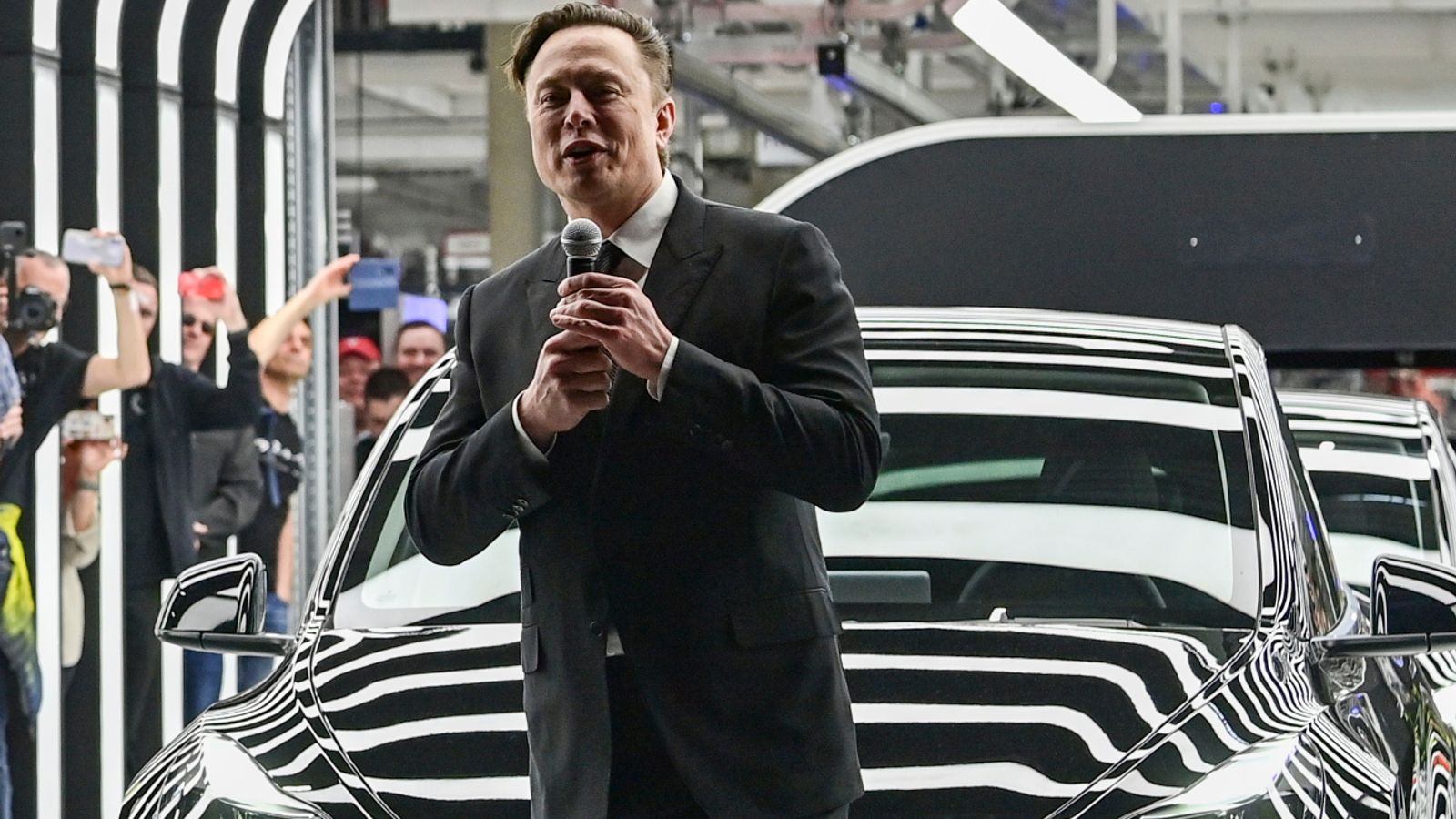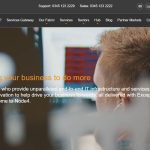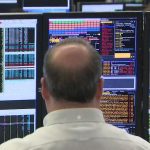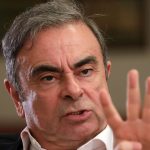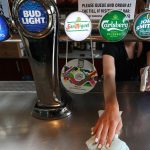Price rises to offset an increase in costs within Tesla’s supply chain has helped the company post a leap in profits and Elon Musk to $23bn (£17.6bn) in rewards.
The electric vehicle’s founder and CEO, who is currently fronting an audacious $43bn bid for Twitter and takes no Tesla salary, is already the world’s richest person by far.
He was deemed last night to have qualified for the payout after the company met performance goals during the first quarter of the year.
Those targets include Tesla’s share price and financial performance, the latter of which shrugged off global supply chain disruption and production cuts in China – both linked to the COVID-19 pandemic.
Please use Chrome browser for a more accessible video player
Tesla, which also includes a solar panel division, reported revenue of $18.8bn for January to March – boosted by multiple price hikes meant to offset rising costs of lithium, nickel, cobalt and other raw materials.
It took Tesla’s pre-tax profit per vehicle delivered above $16,000 – a rise of more than 60% on the same period last year.
Net income came in above $3.3bn.
Rail union plans ‘biggest strike in modern history’ over job cuts
Ukraine war: Sir Richard Branson calls for lower speed limits and suggests flight cuts to reduce West’s reliance on Russian energy
Germany to ban Russian oil imports by end of year after Ukraine invasion
Shares – down more than 7% this year following a meteoric rise over the past 18 months which made Tesla the world’s most valuable carmaker – rose by more than 5% in after-hours deals.
However, analysts cautioned that it may be harder for Tesla to post similar numbers later this year as its costs increase further.
The company is bringing new factories in Germany and Texas up to pace at a time when Russia’s invasion of Ukraine is pushing up commodity costs further and squeezing consumer incomes – a consequence of rampant inflation.
It is also facing more competition.
Musk said on a conference call with analysts that Tesla’s waiting lists remained long however he could not rule out further hikes to list prices saying: “We hope we don’t need to increase the pricing further.”
Despite the Chinese production and supply chain problems, Tesla reiterated its guidance of 50% annual average growth in vehicle deliveries over the next several years.
Musk admitted that lithium, used in battery production, was responsible for the bulk of the cost increases to date and “a
limiting factor” to electric vehicle growth.
He encouraged companies to get into the lithium business, which he said would generate high margins thanks to high prices.
“The lithium margins right now are practically software margins….Do you like minting money? Well, the lithium business
is for you,” he said.
